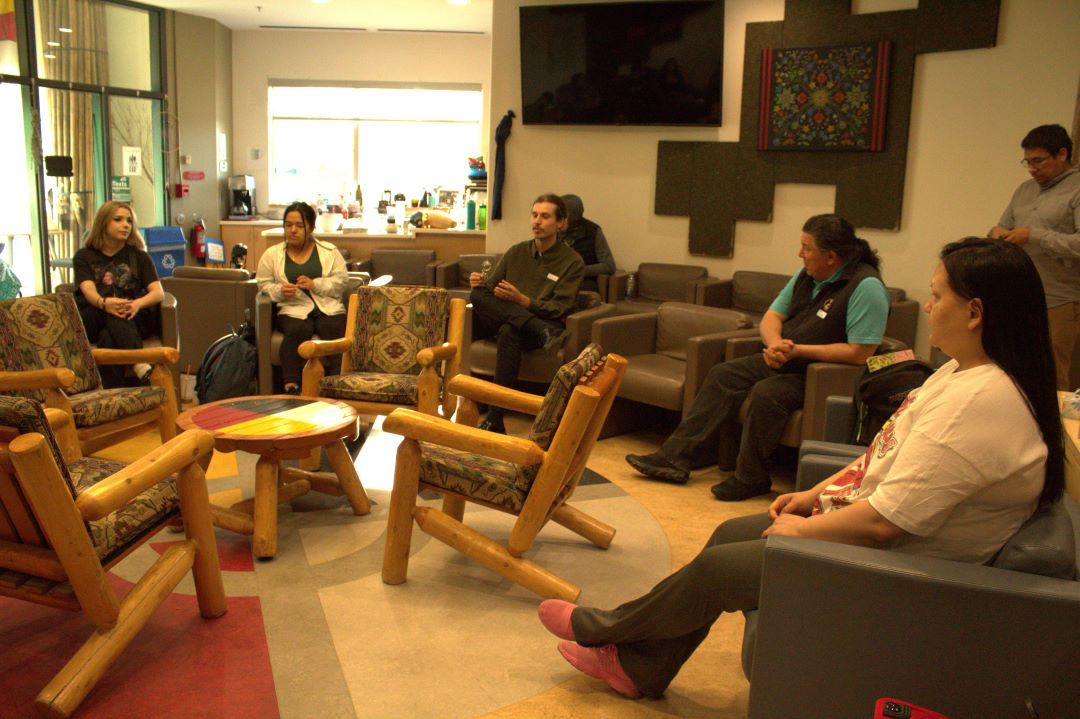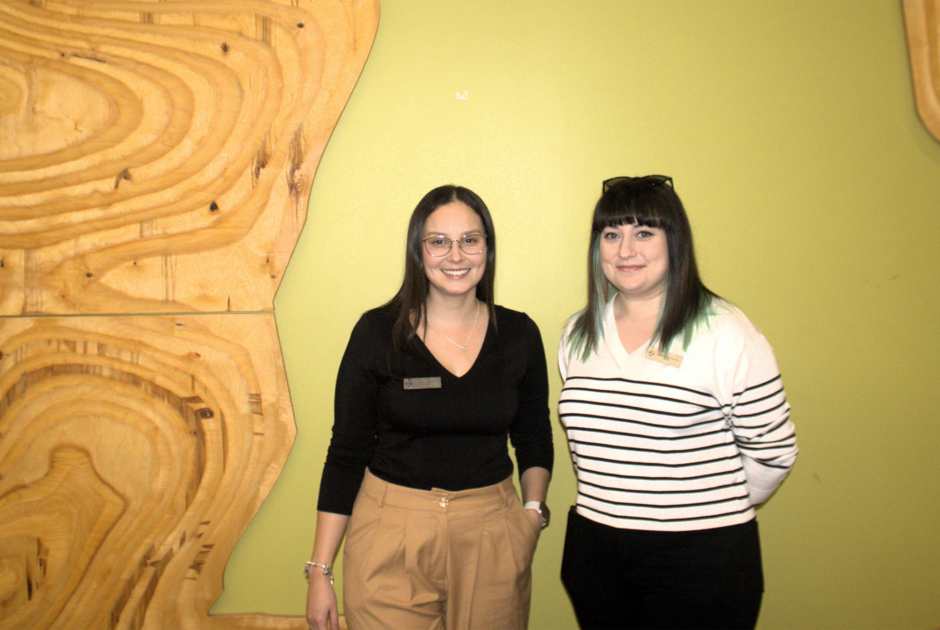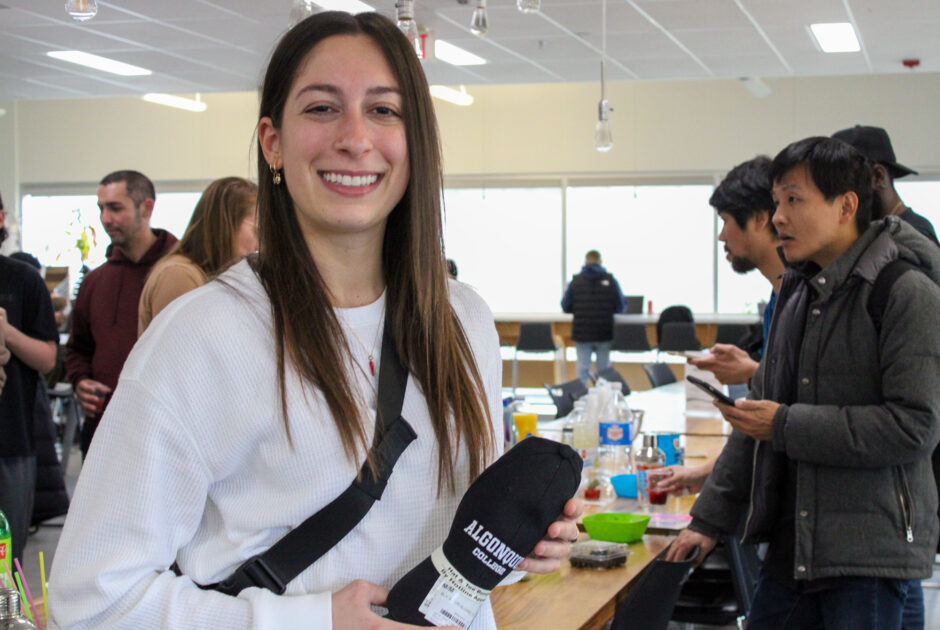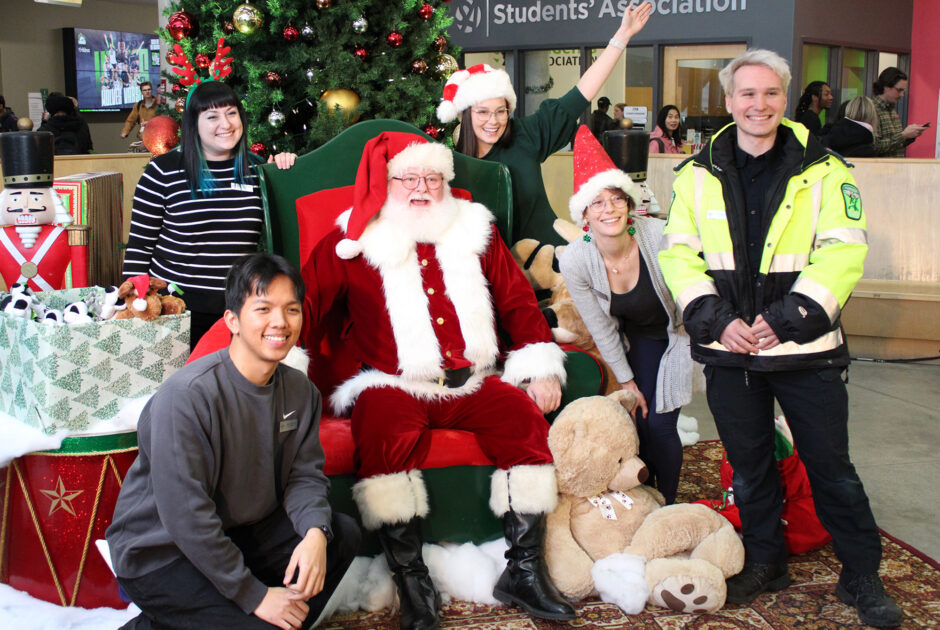Indigenous culture nights held at Mamidosewin Centre

A new program aims to help Indigenous students connect with their roots and express their opinions and feelings without judgment.
The culture night was created by the Mamidosewin Centre to help students adjust to being back on campus since the COVID-19 pause. Students can interact with each other and learn about First Nation history.
“From everywhere, from every walk of life,” Randy Kakegamick, a student navigator at Algonquin College, said.
“Students regardless of creed, race, colour, anything. Mamidosewin Centre is the same way. It’s the same as going to the gym, it’s the same as going to the cafeteria. We try to let people know to come on in.”
Kakegamick wants students of every ethnicity to join the culture night whenever they have time. The program is not strictly for Indigenous people — everything is open to everyone.
Many students who join culture night weekly say it is an opportunity to interact with other Indigenous students and learn about their hardships.
Quill Wawatay Ttaway, a student studying pathways to Indigenous empowerment, is one of the many people who join the culture night every Wednesday.
“I do feel safer when I come to the centre,” Ttaway says. “Personally, I experienced a lot of racism when I was a kid so I came here and it is understanding and it is nice to have people who understand you that way.”
Mamidosewin Culture check-in is also a place where Indigenous students at Algonquin and other ethnicities educate themselves on the types of issues Indigenous people are facing. Difficult conversations touch on substance abuse, violence against women and men and women being natural leaders.
Vincent Nogueira is a professor of general arts and science who is one of the program’s mentors.
“You don’t need to be in communication class to have that thought,” Nogueira said. “Just being here would hopefully help people think more critically, forming questions, forming thoughts.”
Culture night is a safe place for people who identify as Indigenous, where mentors and other students express their opinions and feelings about Indigenous issues, history, culture and current events, such as the National Day of Truth and Reconciliation.
Ttaway said, “I think I’m going to gain lots of friends, equal family and just general support. All of these people kind of experience the same thing you do in a way which is nice because you are able to feel comfortable and safe.”








